Focusing on Women’s Health in West Africa
With funds from a Projects for Peace grant, Latifatou “Lati” Savadogo BA ’24 spent the summer working to provide life-saving health screenings to displaced women in her home country of Burkina Faso.
Social Change and Innovation
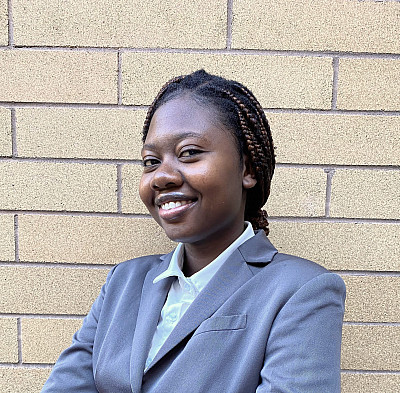
But Savadogo knew she wanted to pursue more education. On a whim, she applied to be a United World College scholar, and to her surprise, she was accepted to a UWC in Changshu, China. “I discovered technology; I learned how to speak English; I learned about hundreds of cultures and countries; I learned to dream; I learned that nothing is impossible; I learned to be confident and to be the better version of myself.”
While in China, she came up with the idea to start a nonprofit to improve access to education in her home country; however, at that time, she was unable to secure the funding she needed to get it off the ground. But the idea stayed with her.
After completing her program in China, Savadogo received a Davis Scholarship to attend Lewis & Clark, where she majored in economics and minored in entrepreneurial leadership and innovation. “I fell in love with Lewis & Clark. Portland is a beautiful city,” she says.
At Lewis & Clark, Savadogo was active in the Center for Social Change and Community Involvement. The center works to create a variety of immersive learning experiences, develop skills to bring about social change and action, and offer extensive leadership development opportunities.
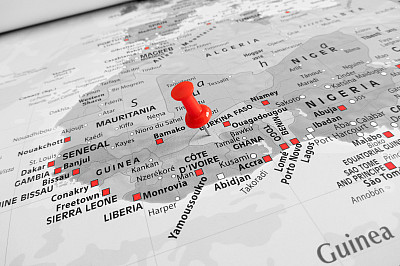
Her grant project, titled “SOS Education,” focused on renovating a primary school in one of the poorest villages of Burkina Faso. “Every child deserves to have adequate educational space,” says Savadogo. “Learning is not just about reading and writing, it’s also about the psychological connection between the student and the educational space.”
While “SOS Education” was successful, Savadogo wanted to do more. With the encouragement of Brian White, director of the Office of International Students and Scholars, she decided to expand the scope of her nonprofit and apply for a $10,000 Projects for Peace grant. These grants, funded by philanthropist Kathryn W. Davis, support grassroots projects around the globe that focus on building understanding and finding solutions for resolving conflict and maintaining peace.
Savadogo called her grant project “Better Health for Internally Displaced Burkinabé.” The project was conducted in Kaya, a city in northern Burkina Faso with the country’s highest population of internally displaced people due to years of terrorist attacks. Building on the foundation of her existing nonprofit, Savadogo developed a health screening program designed to benefit internally displaced women who struggle to access basic health care.
Projects for Peace 2024
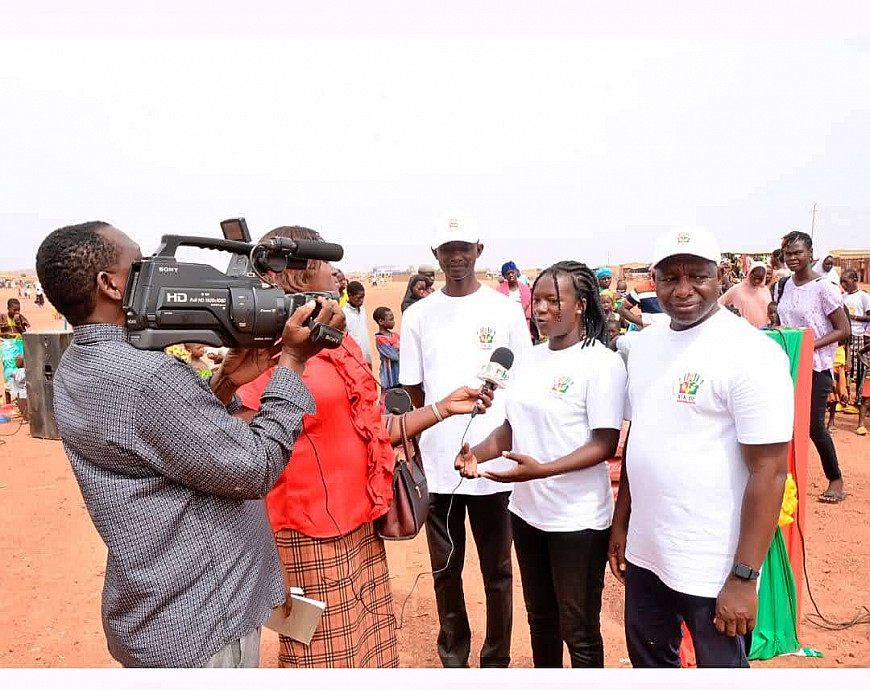
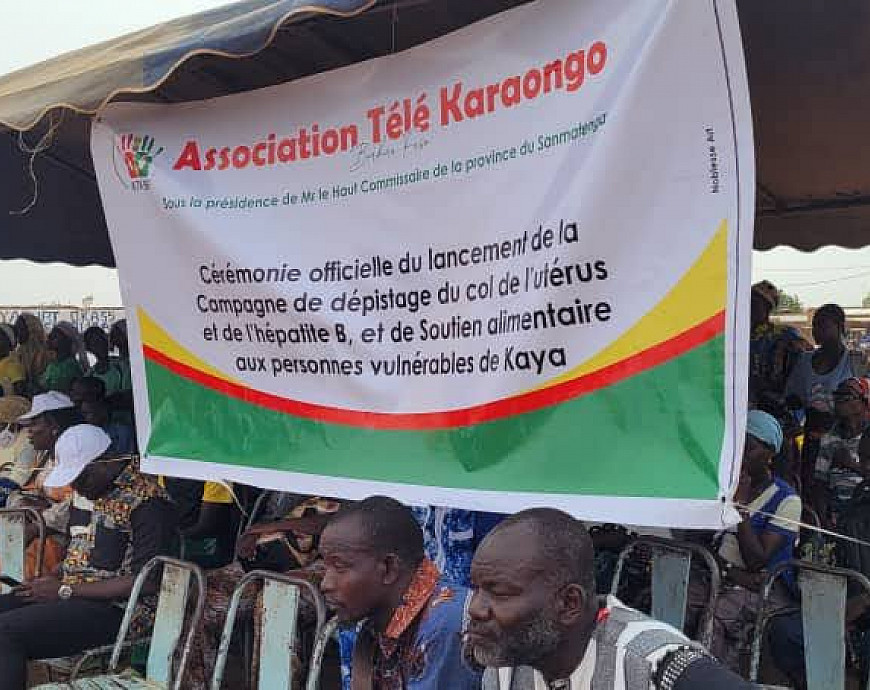
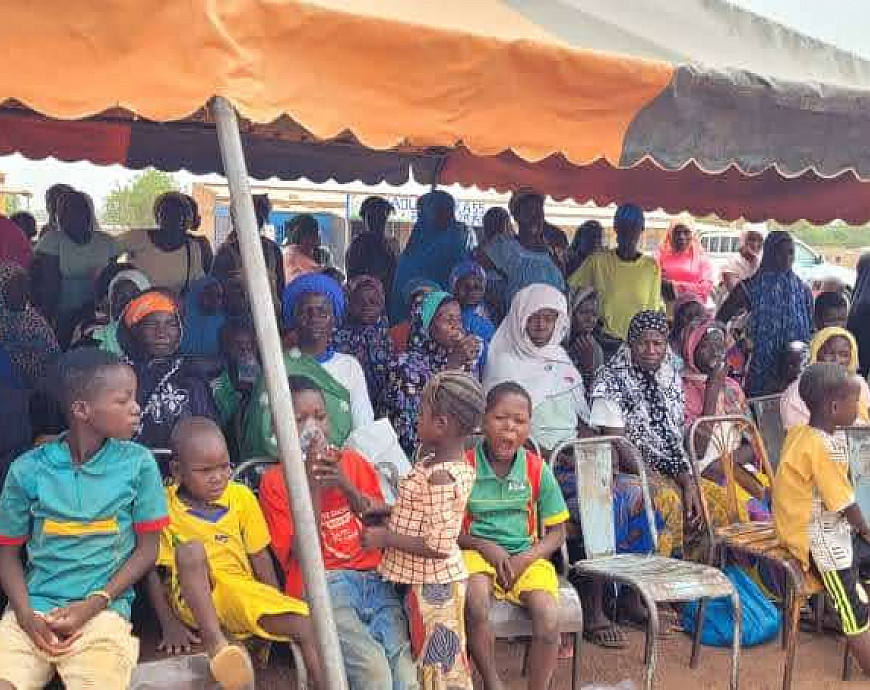
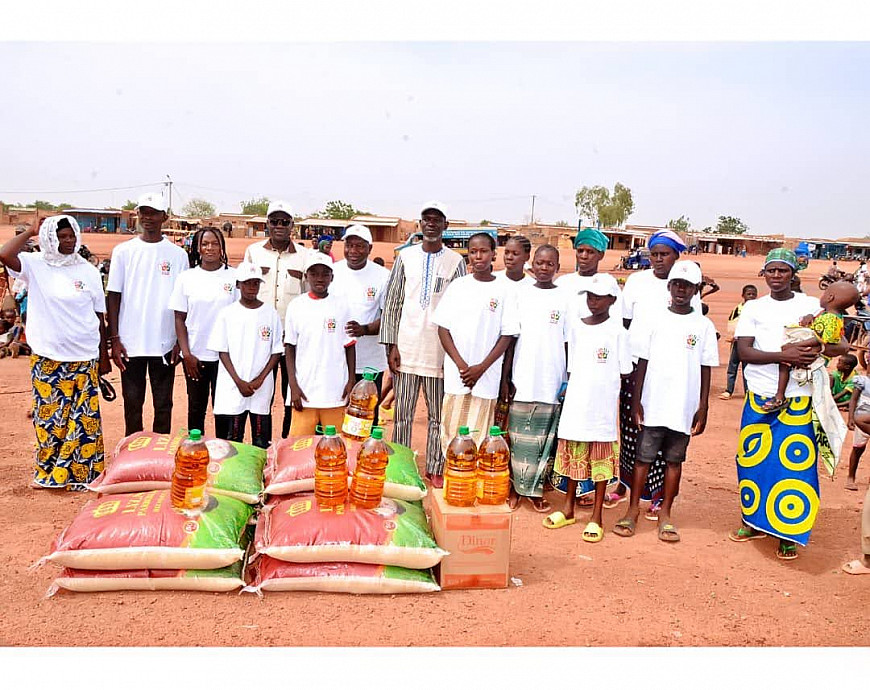
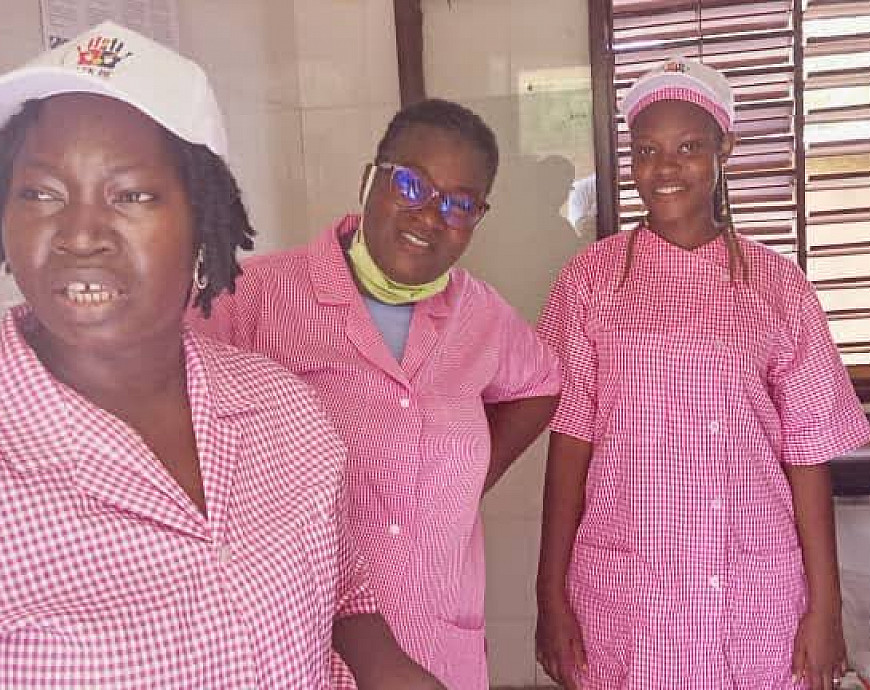
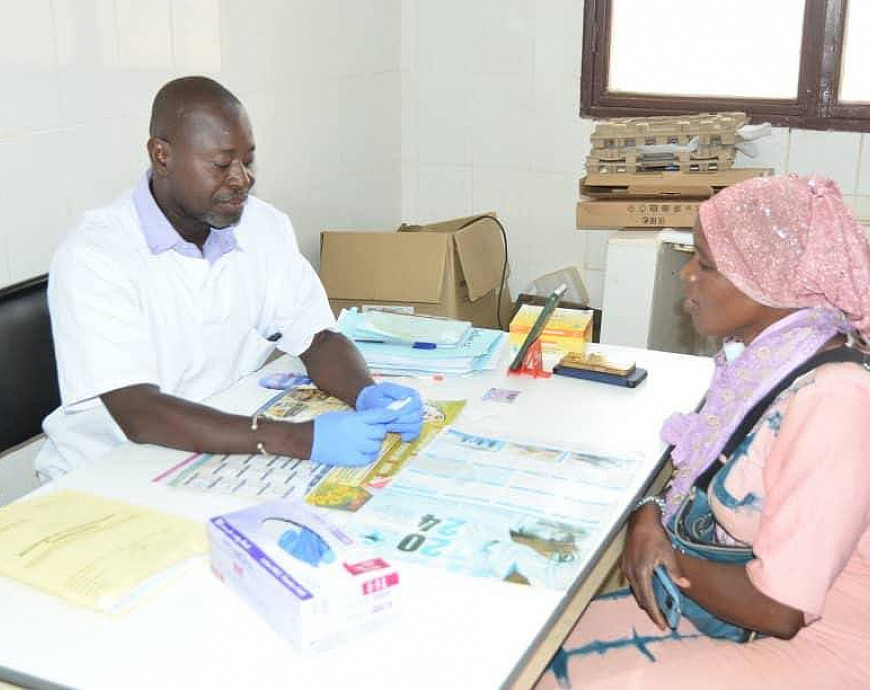
Savadogo designed a four-day health and education campaign focused on conducting workshops, offering screenings for cervical cancer, and administering hepatitis B vaccinations. On-the-ground collaborators included local government organizations, humanitarian nonprofits, and medical personnel, such as certified nurses and midwives. To encourage participation and to help address participants’ food insecurities, the project provided each participant with 25 kg of rice and 2.5 liters of cooking oil.
In the end, 234 women participated in the program. Among them, one woman was diagnosed with cervical cancer, and 15 women were diagnosed with vaginal infections and received prescriptions. In addition, 16 women tested positive for hepatitis B while another 216 women tested negative and received their first dose of the three-part vaccine.
The project was not without its challenges. Due to issues with immigration paperwork, Savadogo had to oversee the project remotely in the States and communicate with her team virtually. Luckily, her father, who lives in Kaya and is a doctor, was able to play a key coordination role.
In the future, Savadogo hopes that the health screenings could be expanded to other regions and cities in her home country. She’s also interested in exploring a microfinance enterprise model to provide a stable source of income for internally displaced women in need.
Currently, she is working in a data management position in Union City, New Jersey. She’s exploring the idea of earning a graduate degree in international finance. Eventually, she may return to Africa, but she’s still pondering that.
In her final Projects for Peace report, Savadogo wrote: “The project has humbled me greatly and reminded me why I need to keep fighting for my community. A sustainable community starts with collaborative and collective efforts, and I will continue to be the voice for those who are voiceless, neglected, and marginalized.”
More Stories

New Leadership
Welcoming the New Dean of Lewis & Clark Law School
On January 2, 2025, Alicia Ouellette took the helm as the Jordan D. Schnitzer Dean of Lewis & Clark Law School. “Dean Ouellette’s expertise and visionary leadership are exactly what is needed to build on the law school’s success and lead it into the future,” said Robin Holmes-Sullivan, president of Lewis & Clark.

Student Success
Scholarship Inspires Student to “Fan the Flames of Tribal Sovereignty”
Vincent Montanic Shoeships is this year’s Nelson D. Terry Scholarship recipient. “I am close to achieving my dream of becoming a practicing attorney, and I look forward to fanning the flames of Tribal sovereignty through upholding federal laws that make Tribes distinct and unique.”

Place-Based Learning
From Trash to Treasure: Creating Art From Waste
Cara Tomlinson’s Art and Ecology class uses waste materials from around Portland to create beautiful and meaningful works of art. This course offers a fresh approach to creative practice, merging art and ecology to help students respond to the climate crisis, explore the agency of materials, and build connections to place.

Belonging and Connection
First-Year Experience Positions Students for Success
Transitioning into college can be an emotional, busy time for students and their families. Lewis & Clark’s First-Year Experience team aims to create a smooth transition by laying the groundwork for a successful first semester.
